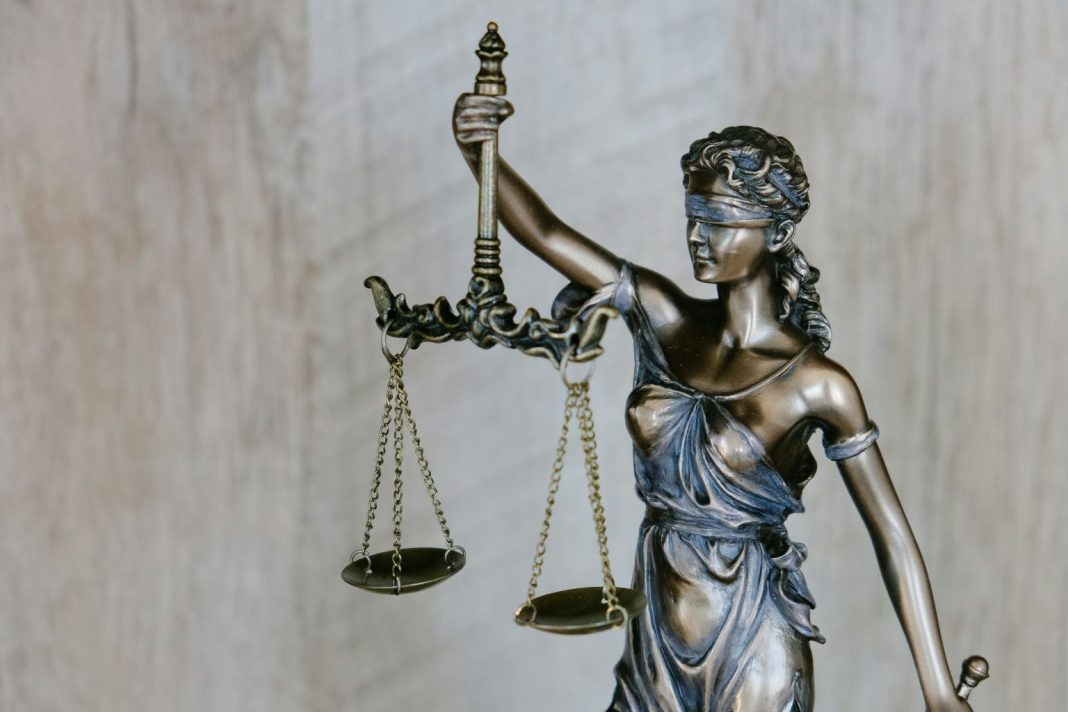Artificial intelligence is changing law practice by offering benefits like increased efficiency. AI-driven research tools, such as chatbots, allow lawyers to analyze extensive legal databases. Although lawyers are embracing the change, there are also some ethical concerns.
Understanding the intersection of AI and legal practices is necessary to balance its benefits and ethical risks. Lawyers must uphold the core values of accountability and confidentiality while navigating complex AI technologies.
Safeguarding the profession
The rise of AI in the legal industry requires lawyers to adapt and be ethical. AI offers benefits such as enhanced legal analysis, speeding up research and handling more routine tasks. However, lawyers must be able to use AI responsibly, as these benefits come with the questions of accountability, bias and transparency.
Another concern for intellectual property lawyers about AI is its ability to create deep fake technology, which can spread harmful misinformation. Therefore, detecting AI-generated content is vital, as it may fall short of the reliability and credibility expected in legal work. Lawyers who stay informed can use AI to enhance their practice while protecting the profession’s integrity.
Professional rules
As AI becomes more integrated into the legal world, it’s more important than ever to follow professional rules. This ensures that AI enhances and does not replace human judgment. Lawyers need to ensure that the use of AI aligns with ethical practices and protects clients’ confidentiality.
Lawyers must understand that legal standards apply to AI tools, how they work and their limits. They must also engage in continuous education on AI advancements to ensure that their usage does not compromise ethical standards.
Client confidentiality
Protecting clients’ confidentiality is fundamental in legal practice. The integration of AI in law firms raises a question about privacy, confidentiality and data protection laws. Since lawyers can use AI to analyze cases, there is a risk of exposing the client’s data security and privacy. Attorneys must ensure that AI providers always adhere to strict data security protocols. This will ensure that there is no violation of attorney-client privilege.
Bias and discrimination
AI algorithms are only as good as the data that trains them, so they can accidentally perpetuate biases. These data come from humans who create predictions and outputs for the algorithm. Since humans can be biased, AI has the potential to be biased on some perspectives regarding legal issues.
Lawyers must be vigilant when using AI by recognizing these biases that can arise from biased training data and flawed algorithms. There should be constant audits of the AI systems to detect discriminatory patterns. Lawyers should also ensure that AI training includes representative and diverse data to avoid biases and ensure transparency. Also, lawyers should inform their clients when AI contributes to their case predictions and review the outputs for accuracy.
Due diligence
Lawyers should carefully evaluate AI tools before integrating them into legal practices. There are AI tools with predictive analytics that lawyers can use to analyze contracts and forecast litigation outcomes. There should be a thorough evaluation of the tool’s reliability, transparency and accuracy, like validating AI predictions against actual outcomes. Conducting this due diligence will ensure lawyers choose AI that aligns with ethical standards in their legal work.
Continuous monitoring
Lawyers should monitor and update AI tools to ensure they continue to work efficiently and ethically. Since there is constant change in legal requirements and AI systems, continuous oversight will help lawyers identify potential issues when they arise. This will also ensure that the tools align with the latest legal standards and ethical practices.
AI-generated document detection
Stylometric Analysis is a method used to analyze the writing style of documents to identify patterns. Lawyers can explore this AI content checker to detect AI authorship by examining the patterns and inconsistencies in the writing style. Comparing these writing styles with human-written content will enable lawyers to spot the inconsistencies that indicate AI-written documents.
Content verification is essential to know when an AI or human creates content. This is important for maintaining high standards in legal practice. When it comes to checking if an AI wrote something, there are several strategies lawyers can use; they are:
Cross-referencing: Here, you can cross-reference the content with other multiple trusted sources with legal texts. This will help confirm facts and ensure information written in the content aligns with trusted sources and legal standards.
Fact-checking: Another way to verify AI-written content is by fact-checking the presented information. AI-generated content may have biases, hence the need to fact-check any legal claims or references in the content. Confirm the validity of the content or legal cases included in the writeup and cross-reference with the provided details.
Disclosure
In the legal profession, clients need to trust that the information received is reliable and accurate, hence the need for transparency. As a lawyer, differentiating between AI-generated content and human-provided legal advice will help you manage your client’s expectations while maintaining trust.
Transparency is also crucial when submitting AI-assisted documents in courts. Courts need to know when lawyers use AI to draft and analyze materials, as it can influence content interpretation.
Human oversight and judgment
In legal practices, there are always different cases that may require different approaches to decision-making. Humans can change and implement decisions based on past cases, which AI cannot. There are circumstances where humans can apply emotions like empathy, whereas AI cannot fully comprehend the ethics that lawyers need.
Avoidance of overreliance
Although AI is a powerful and useful tool in the legal world, overreliance can lead to some risks like errors and biased judgments. It is an algorithm that can perpetuate biases due to its training data, and without human oversight, it may go unnoticed and lead to unjust legal outcomes. AI is a tool to complement and not to replace human decision-making skills in legal practices.
Excessive dependence on AI can reduce the quality of legal practices as it does not take critical thinking into account. AI can handle routine tasks, but it cannot replace the experience lawyers have as it cannot interpret complex statutes independently.
Regulatory landscape
The usage of AI in legal practices must align with national principles relating to democracy, the rule of law and human rights. As the regulatory landscape keeps evolving, lawyers must stay informed about any rules governing the use of AI in the profession.
In AI law, one of the key legal issues regarding intellectual property rights is determining who owns the copyright to AI-generated content. Some regulations require law organizations to ensure that AI tools comply with accountability and bias regulations.
There are also some certification requirements for AI tools used in legal practices. It is crucial for lawyers to verify that these tools are transparent and meet legal standards.
Emerging technologies
Several emerging technologies, like generative AI, pose significant opportunities and risks for the legal profession. Some of the implications of these technologies for ethical practice are that AI-generated documents do not often comply with legal requirements, as they may have biases that could lead to legal disputes.
As AI tools become more advanced, lawyers are more likely to rely on them for legal analysis. This could potentially sideline human judgment in complex court cases. Lawyers need to be critical thinkers, as AI-generated analysis does not take into account important legal principles.
Empower your legal practice with ethical AI
AI in the legal profession helps reduce the time spent on manual tasks, freeing up time for more client-focused activities. Lawyers should take a proactive approach to AI usage by embracing its benefits, such as enhancing innovation and accuracy in legal practice. However, it is crucial to recognize and manage the risks that come with AI, like bias and ethical concerns.
AI should complement a lawyer’s research and practice, not as a reliant tool to replace human judgment. There should also be constant ongoing training and education on AI ethics to safeguard the principles of fairness and accountability.


